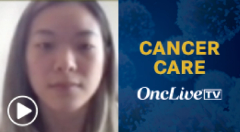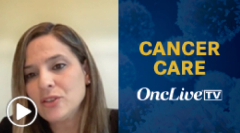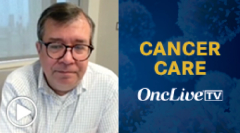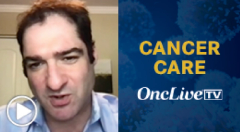
Experts Discuss the Management of Paronychia When Treating Patients with EGFR TKIs
Zosia Piotrowska, MD, Christine Lovly, MD, PhD, and Amanda Cass, PharmD, BCPS, BCOP, discuss the management of paronychia when treating patients with EGFR TKIs.
Zosia Piotrowska, MD, Christine Lovly, MD, PhD, and Amanda Cass, PharmD, BCPS, BCOP, discuss the management of paronychia when treating patients with EGFR TKIs.
Zosia Piotrowska, MD, is a clinical researcher and lung cancer medical oncologist, Massachusetts General Hospital Cancer Center. Christine Lovly, MD, PhD, is an associate professor of medicine, Division of Hematology-Oncology, an Ingram associate professor of cancer research, and co-leader of Translational Research and Interventional Oncology Program at Vanderbilt University Medical Center and Vanderbilt Ingram Cancer Center. Amanda Cass, PharmD, BCPS, is a clinical pharmacist, the Thoracic Oncology Clinic, Vanderbilt University Medical Center.
Piotrowska, Lovly, and Cass explain typical approaches in the management of paronychia, which can include topical steroids and antiseptics, or warm water and vinegar soaks. Additionally, the involvement of dermatologists and podiatrists can be beneficial. However, if the paronychia reaches grade 2 and beyond, dose reduction or dose interruption of the EGFR TKI is considered, Piotrowska notes.
Moreover, it is important that clinicians are thorough when checking both fingernail and toenail beds of patients, Lovly explains, since paronychia can sometimes be overlooked by patients. It can be helpful to have patients send pictures of their skin and nail toxicities to allow for easier follow-up without traveling to see their clinician.















































